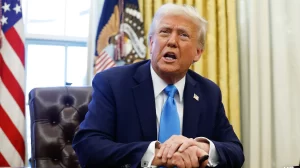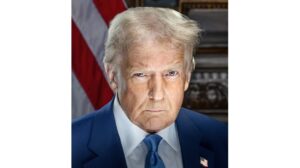My former professor, Russell H. Fifield, of the Political Science Department at the University of Michigan, presciently wrote in 1963: “An ideal situation would be … a framework where India and Japan were counterweights to the power of Peking (Beijing). The United States should do all that is possible and feasible to bring about such an Asian equilibrium.” (Journal of International Affairs, 1963).
My thesis is that the “Quad” is developing into such a counterweight, made up of the major powers of India and Japan, as well as Australia, with the United States as a foundation. The Quad was envisioned by the parties in 2007, but stumbled as Australia left. It was revived in 2017 led by Abe Shinzo of Japan, Narendra Modi of India, Malcolm Turnbull of Australia and Donald Trump of the United States.
Regarding India, a former colony of Great Britain, Modi’s political party, Bharatiya Janata Party (BJP), won the country’s leadership in 2014, won again in 2019 and is expected to win in 2024. Walter Russell Mead has written: it “sits securely at the helm of Indian politics at a time when India is emerging both as a leading economic power and, along with Japan, as a linchpin of American strategy in the Indo-Pacific.” (Wall Street Journal, “The World’s Most Important Party,” March 21, 2023).
India has more than a billion people and may surpass China in population. It could develop into a superpower. India was neutral during the Cold War, led initially by Jawaharial Nehru. India-United States military cooperation began in the 1990s. A “New Framework of India-United States Defense” was signed in 2005.
Regarding Japan, it was occupied by the United States following World War II. Its constitution was written under the leadership of U.S. Gen. Douglas MacArthur. That constitution contained in Article 9 a renunciation of war or “the threat or use of force as a means of settling international disputes.” The Sunakawa Case of 1959, however, held that Japan had an inherent sovereign right of self-defense. Self-defense Forces had been created in 1954. (Percy R. Luney Jr., and Takahashi Kazuyuki, “Japanese Constitutional Law,” 1993). A Japan-United States Security Treaty goes back to 1951; it was replaced by the Japan-United States Security Treaty of 1960, which in Article 6 allows the United States to have bases in Japan. In 2015, Prime Minister Abe “finally decided to join the Japan Self-Defense Forces in combat operations.” (Kanehara Nobukatsu, “Japan and the Expansion of the Liberal International Order,” National Bureau of Asian Research, March 13, 2023). Following Abe, Prime Minister Kishida Fumio doubled the military budget of Japan, making it the third largest in the world, and for the first time began to acquire “modest offensive capabilities to deter possible aggressors (and) has also prioritized multilateral engagement with Japan’s allies and partners as a countermeasure against China.” (Ibid.). This is a reference to the Quad.
Australia, a former British colony, has recently announced that it will buy three U.S. Virginia-class nuclear-powered submarines by the early 2030s. Australia is considered to be within the top 20 military powers in the world. In 2021, Australia, the United Kingdom and the United States established the AUKUS security partnership, tying the U.K. to Asian security.
Indonesia, a former Dutch colony, is the big unknown in the equation. It is one of the largest countries in the world with a population of 274 million. It is also situated on the strategic passageway between the Indian and Pacific oceans. Both China and the United States are courting it, with China seeming to have the advantage. (Perlez, Schmitt and Wee, New York Times, Feb. 1, 2023). Indonesia may remain neutral, but if it does choose a side in the Asian balance, it could be decisive.
Hot spots include the Korean peninsula and Taiwan. Hopefully, South Korea will be secure as an American ally, until the peninsula is unified in the future in a final resolution of the Korean War. More difficult is the uncertainty over Taiwan. The United States should sponsor a legal report by unbiased legal scholars regarding China’s sovereignty over Taiwan. If it has sovereignty, the United States should not frustrate China’s legal rights. China is not being a “bully” in protecting its own property interests.
Source : Lenconnect































